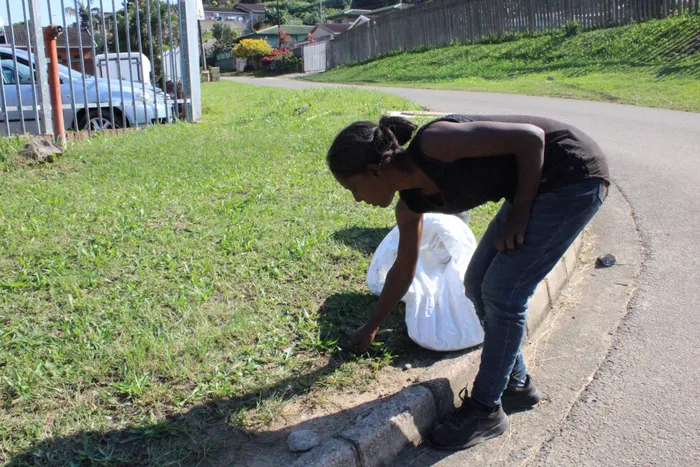Youth want opportunities: Umzinto

From service delivery to employment opportunities, both the elderly and young of Umzinto will head to the polling stations on May 29 in the hope that their votes will bring about much-needed change. Rebecca Armugam, who is unemployed, does odd jobs to earn a few rand so she can put food on the table.
From service delivery to employment opportunities, both the elderly and young of Umzinto will head to the polling stations on May 29 in the hope that their votes will bring about much-needed change.
Gita Maharaj, 62, said due to the water rationing in the area, she’s suffered two injuries.
“While returning to my home – carrying two buckets of water which I had filled from a tanker – I suddenly felt a sharp pain in my knee. I later found out I had torn tissue. Since then, I have spent thousands of rand on medical treatment.
“Two weeks ago, while carrying water from the passageway to my toilet, I slipped and injured my hip. My husband, who is 74 years old and ill, now has to bear the strain of collecting water for us.
“We are pensioners, so we could only afford to save enough to purchase a small JoJo tank, which collects rainwater for household use such as the toilet. We have to buy water for drinking and cooking, which is quite costly,” she said.
Maharaj said they also had to purchase solar-powered lights for the outside of their home, due to the street lights not working.
“You will find that most of the street lights in the area are not working, and this has led to residents’ copper pipes and taps, or any other items that are in the yard, being stolen. There have also been a few incidents of homes being broken into.
“If I didn’t have the lights, then my yard would be in complete darkness. We also used to go for an early morning or evening walk but had to stop due to not feeling safe. The majority of the homes are owned by elderly people, and it is no longer safe for us,” she said.
Maharaj said she hoped for a positive change following the elections.
“I hope that we will finally get the service delivery that we require. We pay our rates and utility bills every month, that too on time, so why are we not being provided with the service that is rightfully due to us? Many people cut down on other basic needs such as food to make sure they pay their bills,” she said.
Soobramoney Gopal Pillay, 62, said poor road infrastructure, together with unkempt verges and bushes were a growing problem.
“We don’t even want to drive our cars because the roads are in bad condition. The potholes are so big that one wrong move and you will have to spend hundreds of rand to fix your car.
“There are also many bushes surrounding homes, which have become overgrown and are now hiding grounds and escape routes for criminals, as well as spots for people, including our youth, to use substances. Just the other day, a curtain was stolen from one of the washing lines and the man ran through the bush into the CBD area,” he said.
Pillay said other issues included unmaintained drains as well as erratic refuse collection.
“When there is heavy rain the water stands and even flows into people’s homes. Residents' furniture and other belongings get damaged and that is because the drains are not cleaned regularly.
“We also put our refuse out on the days that we are told, but recently, we have noticed that it is not being collected. We live in a flat, so we cannot take it back inside and have to leave it outside in a corner with the hope it will be collected before the dogs or vagrants get to it. It is a health hazard and the smell is unbearable,” he said.
Pillay said he hoped for a more proactive government.
“Many promises have been made in recent weeks, but 30 years into democracy we are still waiting for change. I hope to see better service delivery, more health-care facilities being built and better policing to rid our communities of crime,” he said.
Rebecca Armugam, 30, said the lack of job opportunities had left many families battling to make ends meet.
“We are expected to pay our utility bills and rates, but how can we if there are no employment opportunities? Over the past few years, it has become even more difficult to get a job due to businesses closing down or staff being retrenched because of the Covid-19 pandemic and looting.
“The municipality should, in fact, be employing people from the community to clean up the area, such as trimming the verges and bushes, so we have some work to do that will help us to sustain our homes. Right now, I walk from road to road looking for odd jobs such as cleaning yards, cutting grass and washing cars. Thankfully, the community helps me with some income, but how long can I do this for? I want to earn a proper salary and live a decent and meaningful life,” she said.
Avril Pillay, 18, who will be voting for the first time, said she hoped that there would be more educational opportunities for the youth.
“I hope that one of the main focuses will be empowering the youth with skills development programmes in communities so that we can apply for jobs or become entrepreneurs,” she said.
Related Topics: